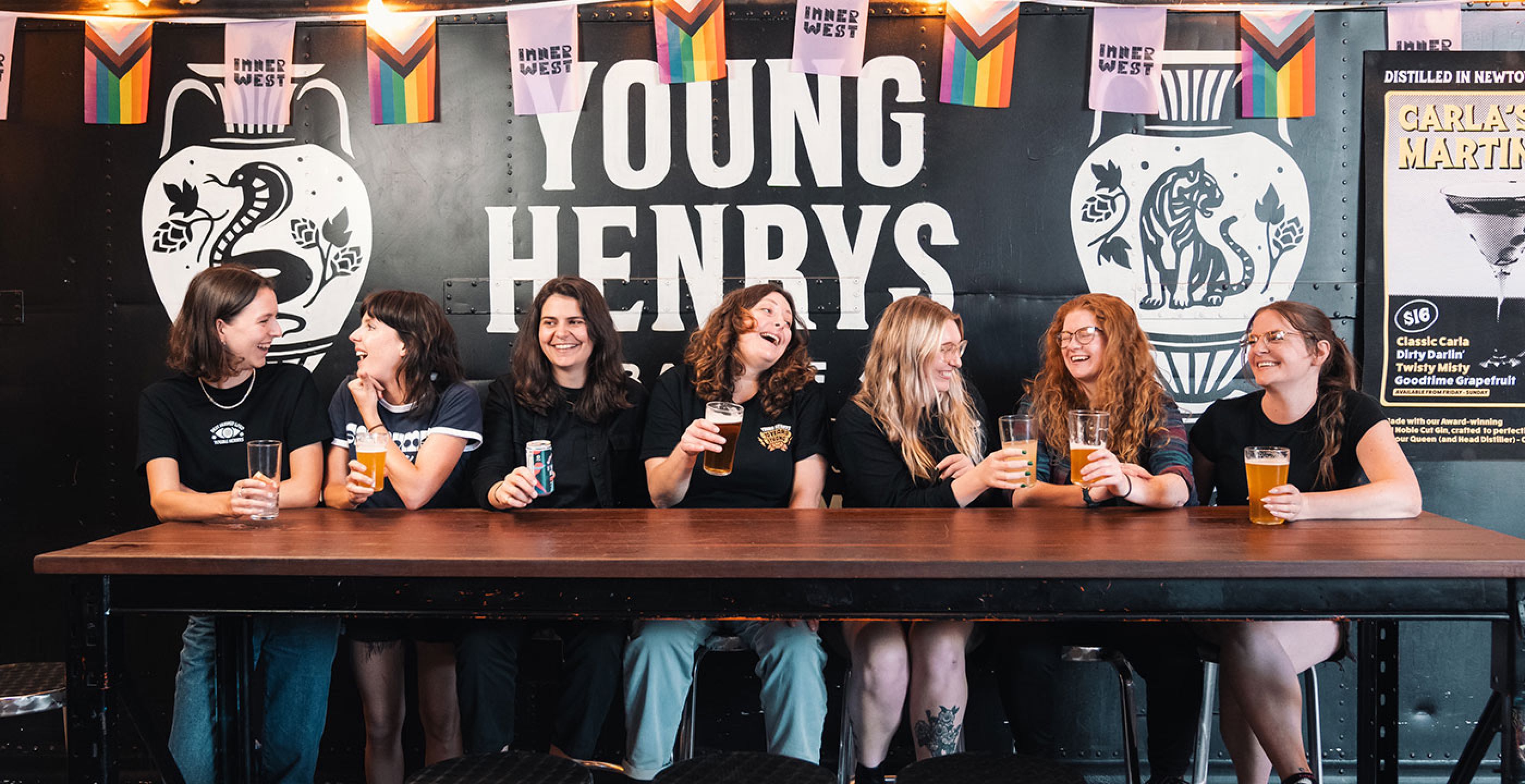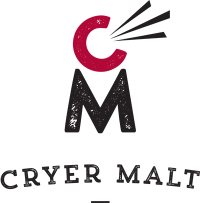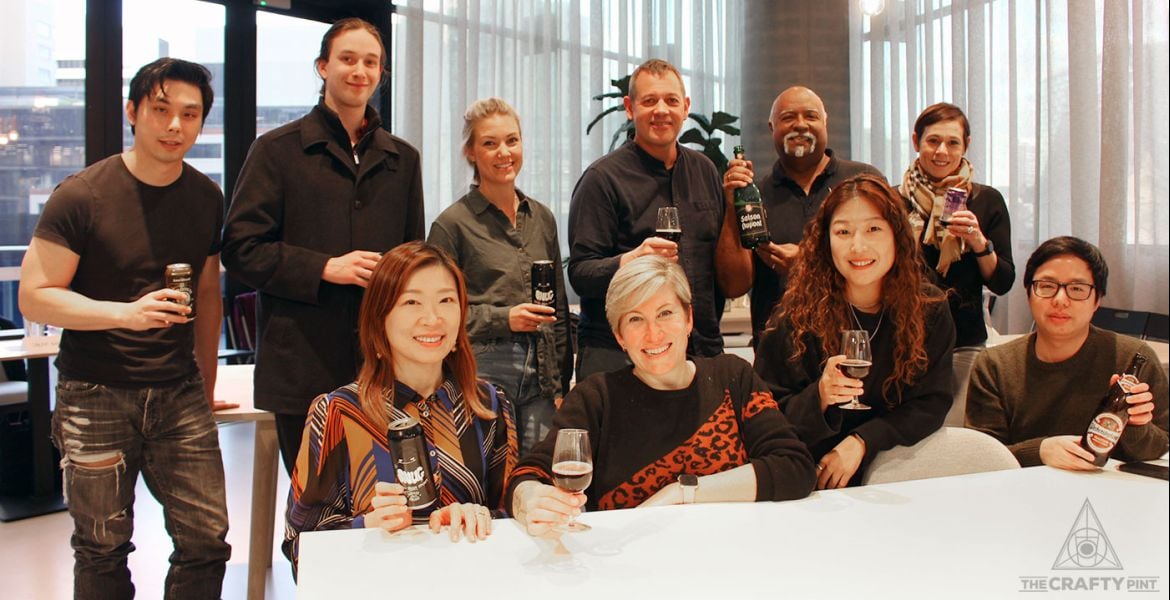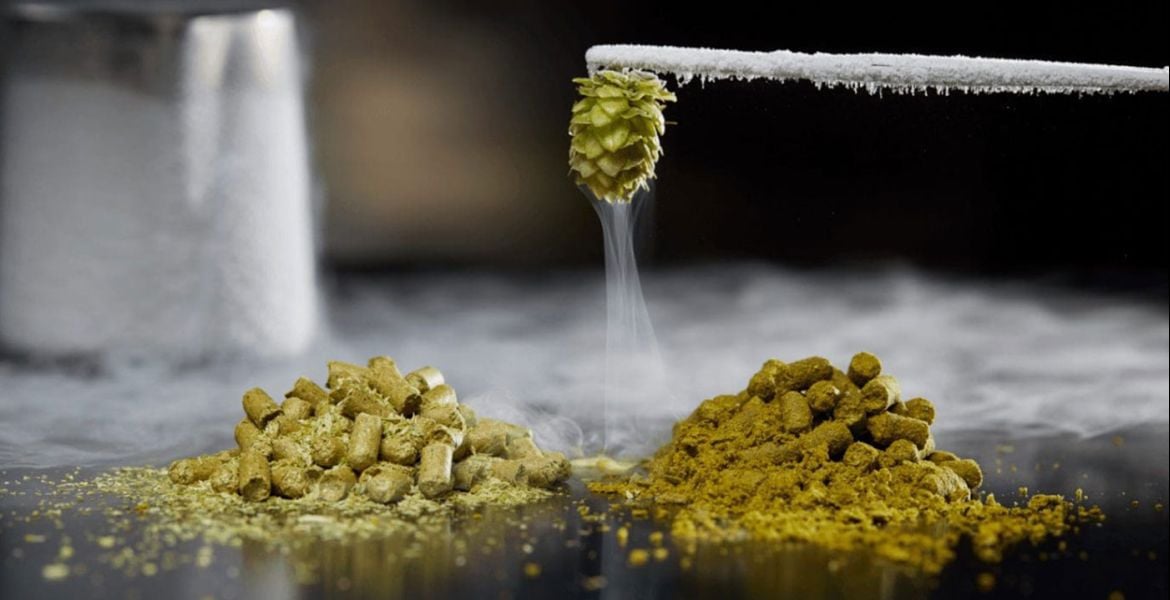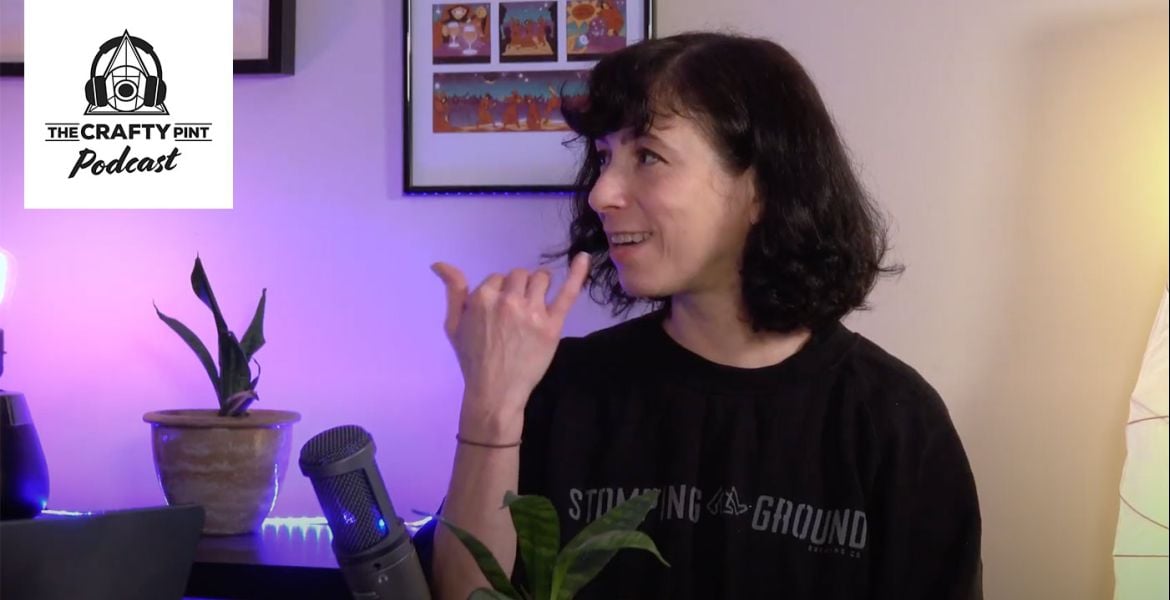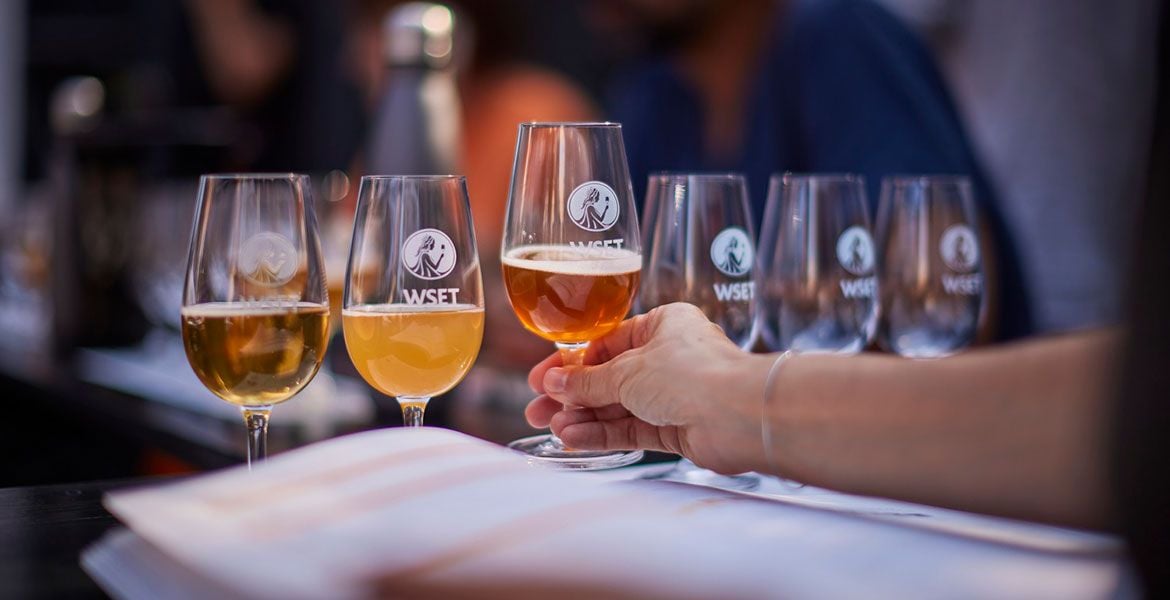“It is viewed as a bit more of a physical, male-typical job so it took me a bit more time to give myself the permission to take the plunge."
“I knew I wanted to be a part of the industry but I went, 'How do I do that? I’m never going to be a brewer, it’s not something I’m going to be able to do.'”
Those are the words of Emma Elmslie and Danielle McDonald, two brewers reflecting on the hesitancy they felt when they weighed up starting a career in beer.
Emma, who brews at Mountain Culture after stints at White Bay and Wayward Brewing, had long held a passion for beer and brewed at home. But it wasn't until the global pandemic came around that she decided it might be a good time to join the industry.
She enrolled on the Certificate III in Food Processing (Brewing) course at TAFE NSW; there, she was one of only three women on the course which she says wasn't just about learning but was great for networking too.
“I thought it was a great time to do that in the midst of COVID-19," she told The Crafty Pint. "So, in 2020 I left a secure job in banking and finance to become a brewer – and I suppose I’ve never really looked back.”
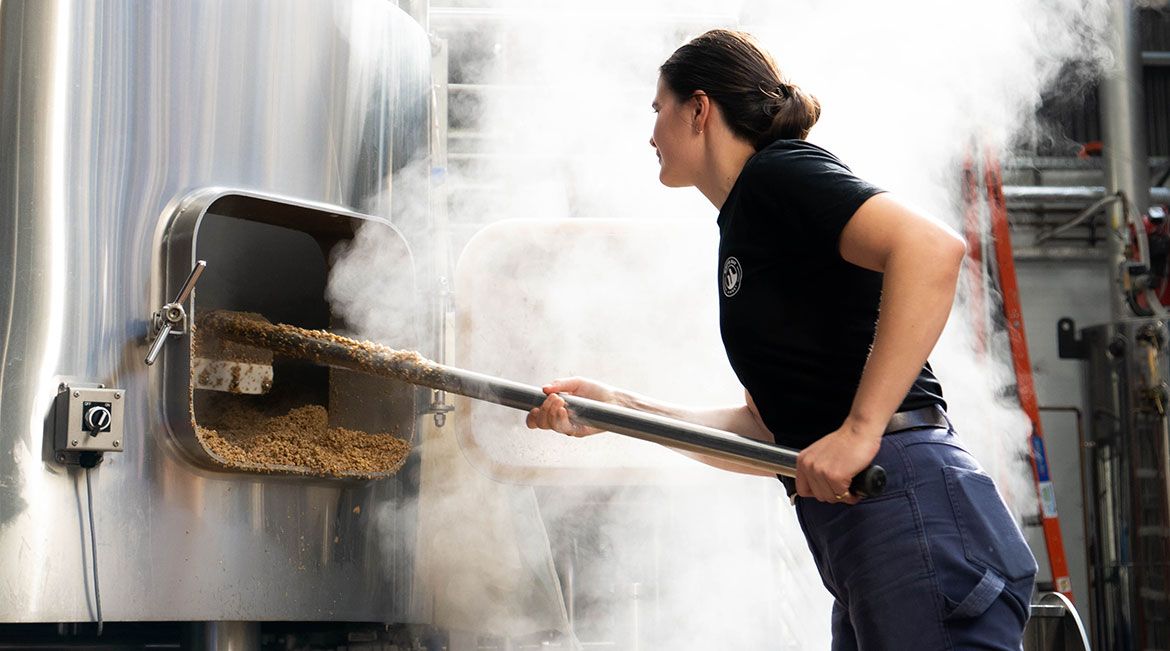
Danielle is head brewer at Sydney Brewery’s Surry Hills locations, where she produces all the brewery’s small batch and R&D beers on a 500-litre system. Her career in beer followed a corporate career and a longstanding love for craft beer she shares with her husband. Late in 2019, the pair decided to start a brewery tour business, which led to Danielle enrolling in the same TAFE NSW course.
“I went, 'I better go and see how beer is made,'" Danielle says.
Creating more opportunities for more people to enter the beer industry is what led Young Henrys to launch their brewing scholarship. Now in its third year and run in partnership with The Crafty Pint and Blundstone, the scholarship is open to any female, female-identifying and non-binary person enrolled on the TAFE course; the winner receives funding for the course as well as mentoring from the Young Henrys team.
Applications for this year's scholarship close on February 29; as the deadline approaches, we spoke to Danielle and Emma about their experiences studying and working in the beer industry.
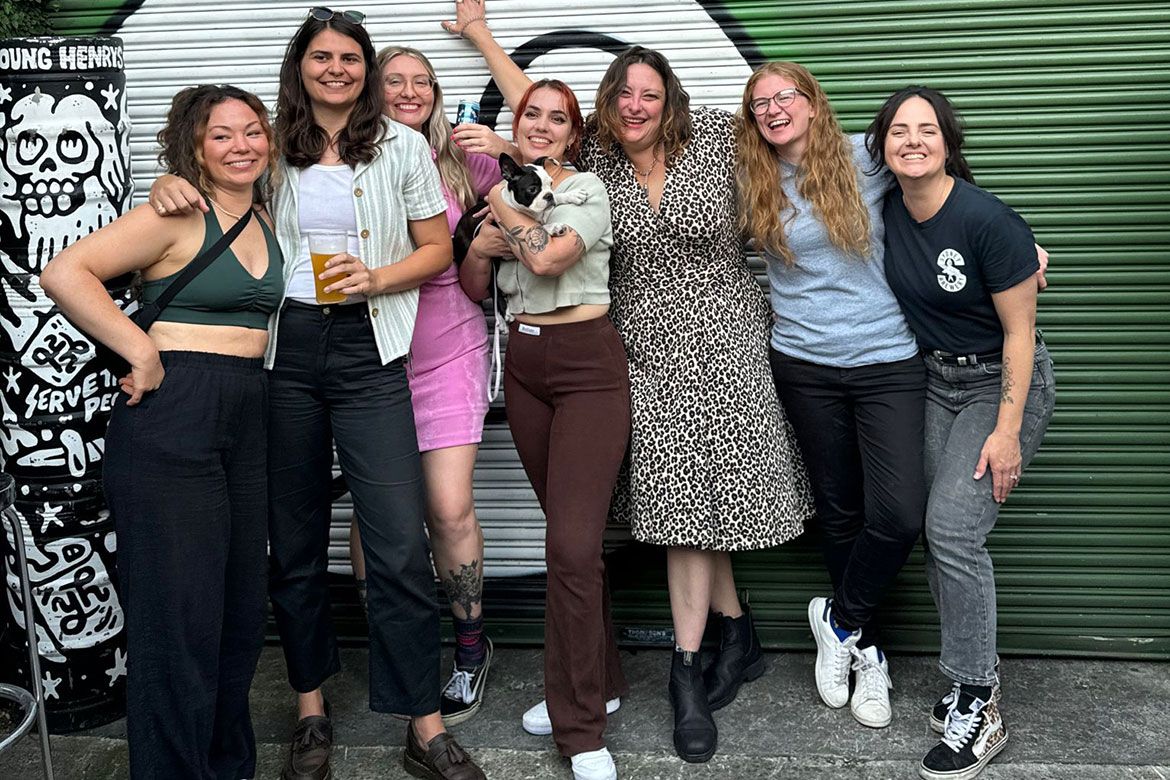
What’s the biggest lesson you’ve learned in your career in beer?
Danielle: Having not worked in the industry before, it has been a huge shift for me. It’s not easy work; it is physical, a long day and the environment is very present – you’re feeling all the elements.
For me, coming from a white-collar space, it was more physically challenging on the body than I ever thought it would be. It’s definitely not sitting around drinking beer all day like how people perceive it.
Emma: There is that old conundrum of the more you know, the less you know. So I suppose I still have moments of that now; there’s always more to learn, there's always new products and new challenges that happen every day. It’s one of the reasons why I love the industry so much – it’s forever changing.
Do you think the beer industry does enough to welcome female/female-identifying/non-binary people?
Danielle: I think it’s definitely changed since I came into the industry almost four years ago; there are more women working in the industry now. My experience has always been a lovely one and I’m never made to feel like I’m not part of the team, or that I’m incapable of doing certain things because I’m a woman.
But I do think there is a generational thing where some of the older people in the industry might go: "You’re our female brewer, let’s show people that we have a female brewer working for us."
You wouldn’t do that with male brewers, I’m just a brewer. I think the intention is there but there’s still an educational piece around using the right language.
Also, consumers are still surprised at women working in the industry. I get that a lot and get it to this day. You don’t ever see beer drinkers walking up to the guys in the brewhouse and going: "Wow, you actually make the beer?"
Emma: I think the industry could be doing more. There are great organisations out there already such as Pink Boots, which help empower women and non-binary beer professionals and help them advance their careers.
Drink Agents For Change’s annual diversity and inclusion survey is a really great way to get that information out there. Then there’s the Young Henrys scholarship for the TAFE course, so there's stuff happening but I think there could be some more.
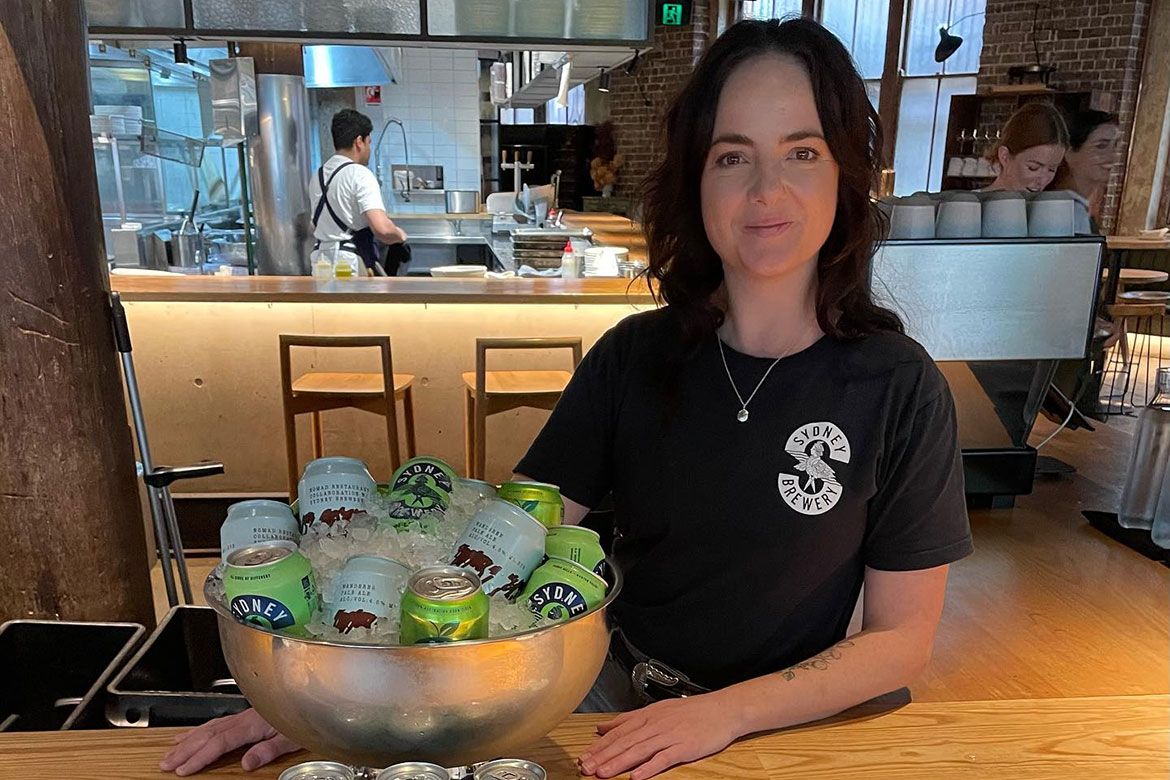
What could the industry do to become more diverse?
Danielle: I think things like the TAFE course are great, and what Young Henrys are doing with the scholarship – as are Pink Boots – that have been really great at encouraging women to join this space.
But I also think it's important to acknowledge differences in job ads when you could talk about experience being preferred but not essential. I used to work in recruitment and women are more likely to say: “Oh I don’t have the experience.” Whereas men will go: "Fuck it, we’ll just see what happens and hope for the best."
Emma: While there are already some organisations and people out there advocating for diversity, I think it still needs to come from within businesses themselves for a more sort of systematic impact.
I think most businesses would say they have nothing against diversity but I think it needs to be more enthusiastically welcomed. That can be shown through something like a Code of Conduct or a Mission Statement. When a lot of people apply for jobs, they research the company they’re applying to so will scout through the website and see what’s on there.
I like how New Belgium in the US has a section on what they believe; it’s just a few paragraphs but something quite small can be very encouraging for people who do feel like they’re part of a minority in the industry.
We live in such a fast-paced society, and diversity brings growth and change, and can prevent a business from becoming stagnant.
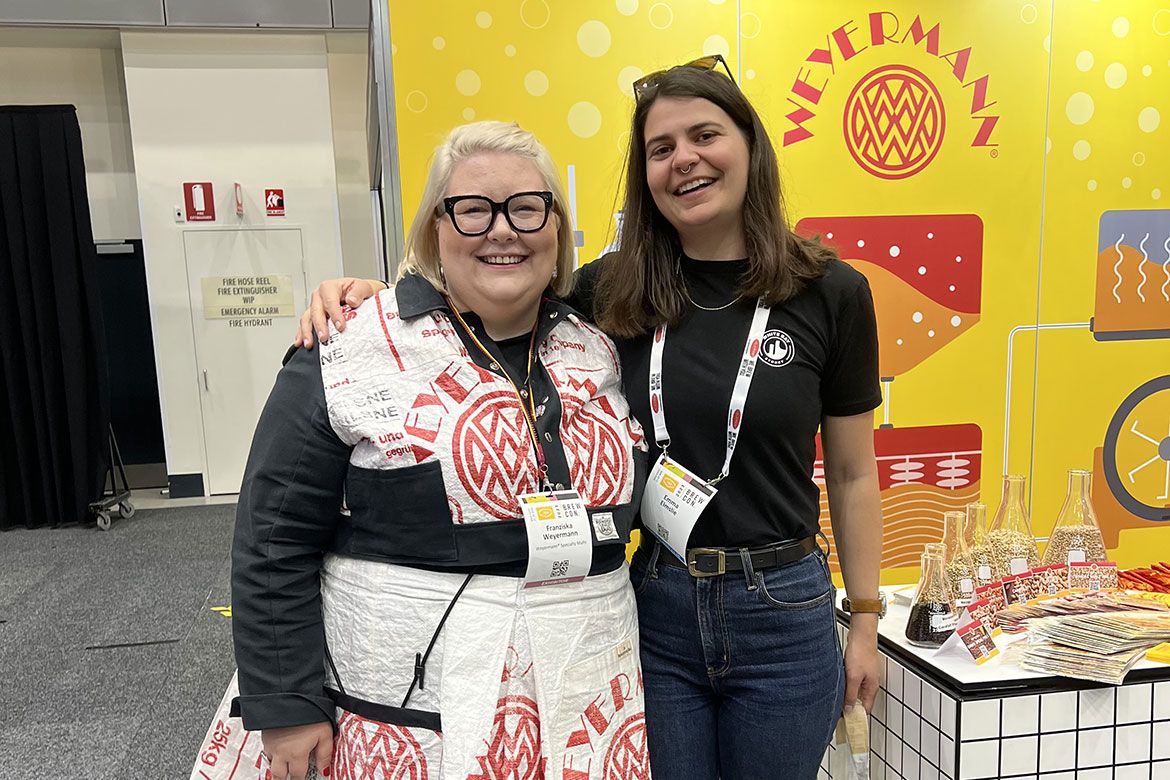
What's one thing you wish you could change about the local beer industry?
Danielle: I would definitely like to see consumers being less surprised by women working in this space.
I also don’t want to see coconut in beers. I don’t want to brew beers with coconut; it’s brewer’s glitter. You make a beer with coconut and you find it everywhere for like four or five months.
Emma: There could be more resources for businesses out there wanting change and more diversity that don’t know how to go about it. So it’s important to have good starting points for drafting up a Code of Conduct or a Mission Statement.
What's been your favourite beer moment – whether within the industry or on a personal level?
Danielle: It was probably when my first beer got canned. I won Sourfest at Batch so they scaled up my recipe and I had my name on the can. It was an orange, honey and thyme sour that I based on a dish from a café around the corner. It was called Autumn Toast and it had this really buttery bit of bread with honey, thyme and orange zest on it; it was such a good dish and I was surprised how well it turned out in a beer.
I also did a visit down to Voyager during the grain harvest. It was such a fantastic experience, to understand the beginnings of it and to meet the family.
Emma: Last year, I got to meet what I would regard as grain royalty, Franziska Weyermann, who flew over from Germany and came through White Bay.
There was also the New South Wales Pink Boots brew day last year; it was at Philter and I hadn’t attended one yet because of COVID. It was just such a great opportunity to go and get to know more women and non-binary people in the industry.
Applications for the Young Henrys scholarship close on February 29. Apply here.





